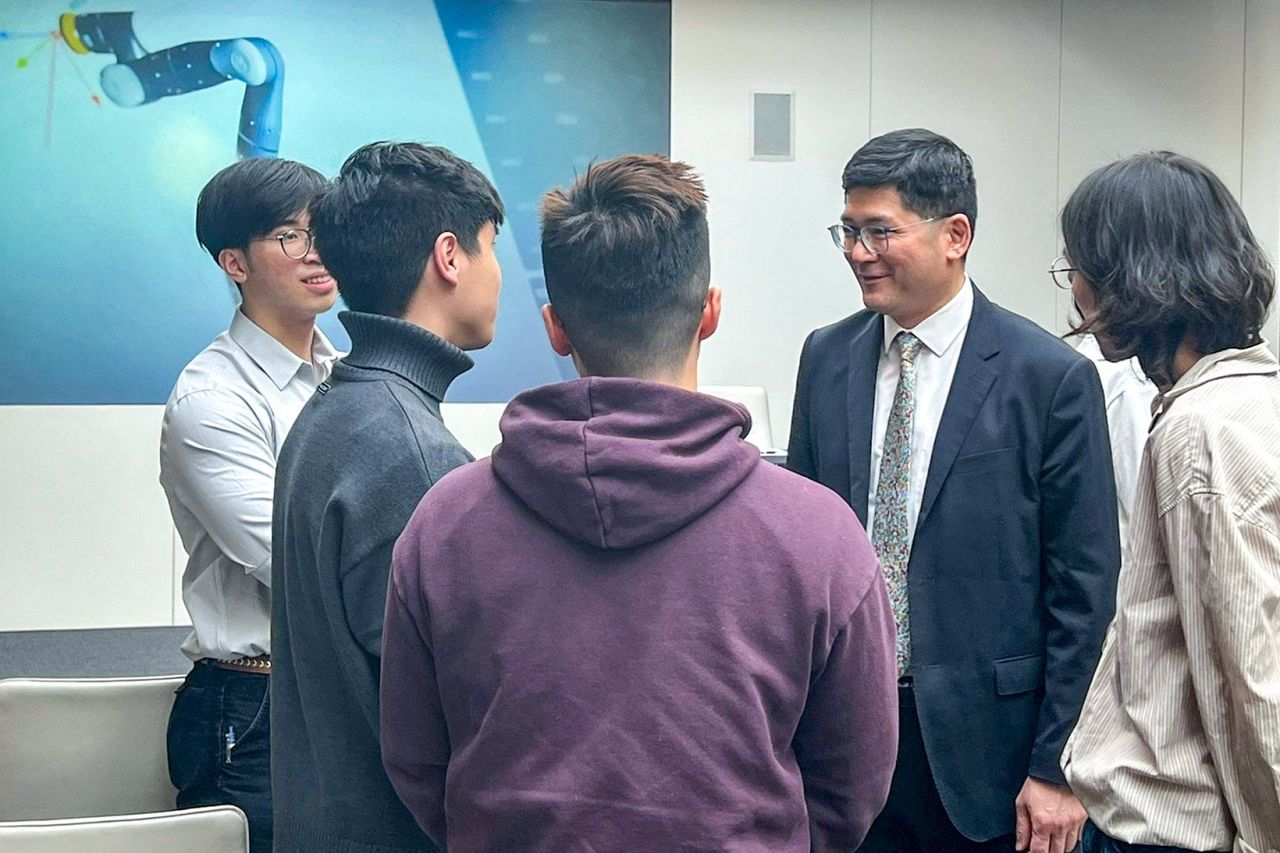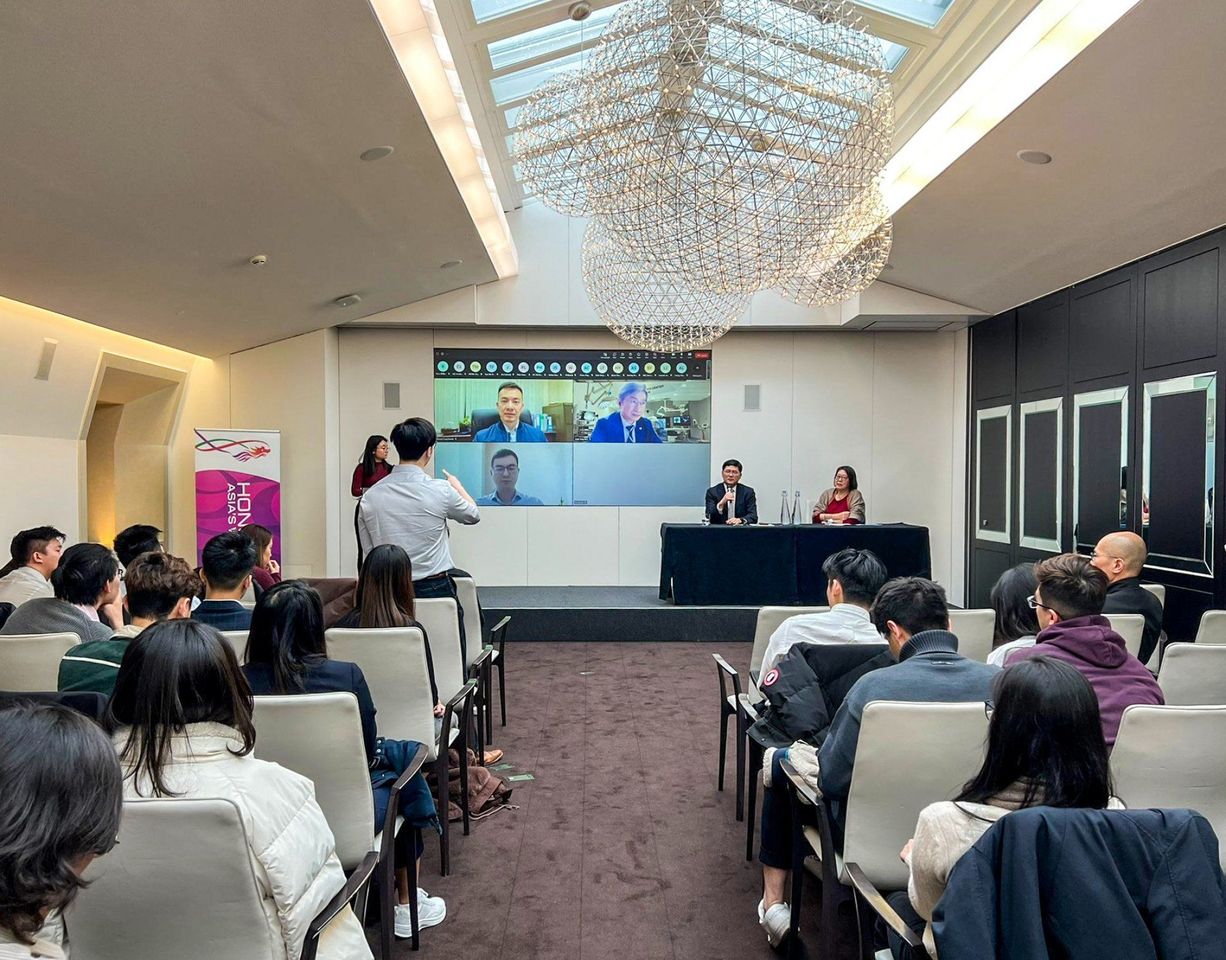Hong Kong News

Hospital Authority chief sells Hong Kong to UK-based medical students, doctors
More than 200 UK-based medical students and doctors attended a Hospital Authority recruitment event in London over the weekend in the organisation’s latest attempt to lure non-locally trained talent to Hong Kong amid a manpower shortage.
The authority’s chief executive Tony Ko Pat-sing spoke to students and professionals during the “Hong Kong Day” in-person and online event on Sunday, detailing what it was like to work in the city’s public healthcare sector and the career pathways on offer.
The event was hosted by the Hong Kong Medical Society of the United Kingdom, an organisation representing students and doctors from the city who live in Britain.
 Tony Ko (right), chief executive of the Hospital Authority, speaks to students at the session in London on Sunday.
Tony Ko (right), chief executive of the Hospital Authority, speaks to students at the session in London on Sunday.
But Ko, who is spearheading an authority delegation in the country, admitted the public healthcare sector faced difficulties in employee retention and recruitment.
“We did have retention problems because business [in the private sector] was too good,” he said in response to a participant’s question.
“There are colleagues who are more interested in private sector work ... you may find the salary [in the Hospital Authority] is more attractive compared with [Britain]. But the private sector is even more attractive.”
The authority chief emphasised that the experience of growing professionally and picking up clinical skills, while serving the public, was “extremely satisfying”.
“That’s why we also see a large number of people who would like to work in the public service for long periods of time,” he said.
He also elaborated on opportunities to receive specialist training and obtain related qualifications in public healthcare institutions after returning to Hong Kong.
Participants at the event watched pre-recorded videos featuring interviews with current authority practitioners, which promoted Hong Kong as a vibrant city to start a career with good work-life balance.
Eligible students or professionals who attended either in person or online were able to follow up on job offers, according to the authority.
Among the participants was 22-year-old Simpson Tam, a fourth-year medical student from the University of Cambridge.
He told the Post that he decided to attend the event in person on Saturday because he had limited knowledge of how to best prepare applications for jobs with the authority as a non-locally trained doctor.
Tam, who has an interest in pursuing plastic and reconstructive surgery, said the authority was helpful in answering his queries.
 Participants were able to join online or in person.
Participants were able to join online or in person.
“As an aspiring clinician, I am exploring educational and specialised training opportunities. The Hospital Authority employment package and the world-class transportation infrastructure have been sufficiently convincing to persuade me to work in Hong Kong.”
Tam left his details with the authority so they could contact him for future offers. He said he had seen some participants receive job offers during the event, on the condition of successful performance at a subsequent interview.
Data from the Health Bureau provided to the Legislative Council on March 15 showed Hong Kong’s public hospitals were contending with a lack of manpower, after losing 1,247 doctors between April 2020 and the end of 2022, with only 15 per cent of them retiring.
During his maiden policy address last October, Chief Executive John Lee Ka-chiu vowed to explore different ways of boosting the public healthcare system’s flagging personnel numbers, such as requiring qualified professionals to serve at government institutions for a specified period of time.
In October 2021, Hong Kong also introduced a registration scheme allowing graduates from the world’s top medical schools to work in the city without passing a licensing exam.
So far, 75 medical qualifications issued by schools from countries including the UK, the United States and Canada have been included in the scheme.
The initiative had only attracted 65 applications as of December, with nine receiving offers, according to the authority.
But student Tam also said some medical students attended the event even though their schools were not on the list, while Ko had told participants the government hoped to include more medical schools in the future.
Secretary for Health Lo Chung-mau earlier admitted the scheme’s progress had been “imperfect”, but argued the plan needed more time before it could attract more applicants.











